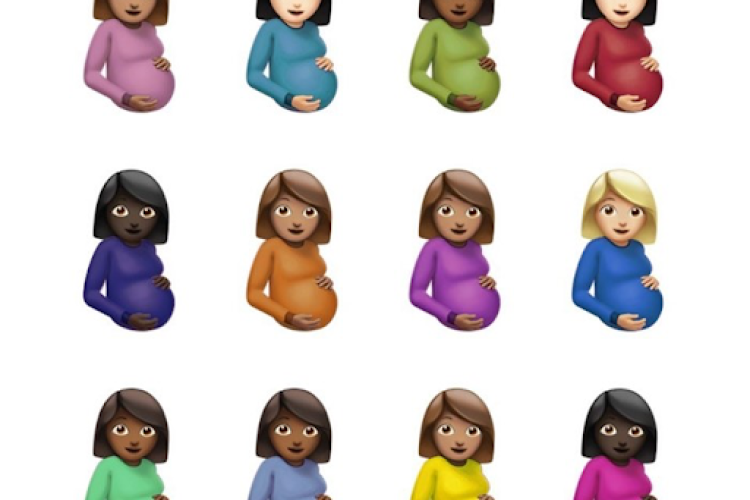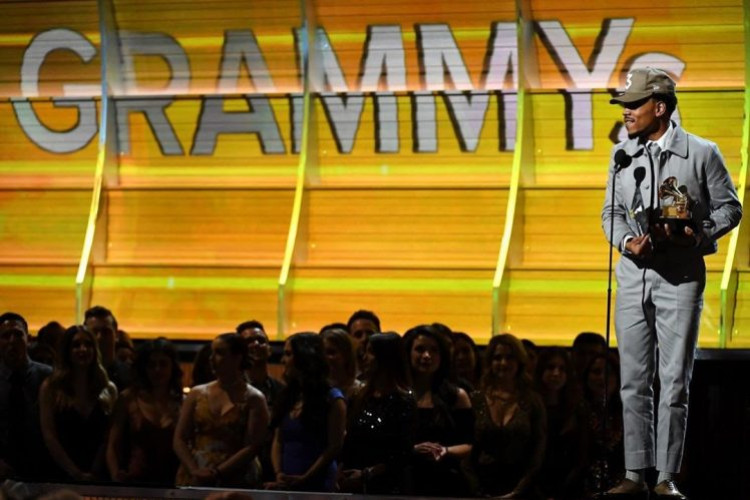
Luby Sparks: “I think that was the end of the dream pop era for us.”
After their mesmerizing gig at Joyland Festival’s Plainsong Stage, we were also fortunate enough to have the chance to chat with them on topics from music, their creative decisions in producing crafts, up until anime.
Words by Whiteboard Journal
Words: MM Ridho
Photos: Nugie Rian
Two songs were really all the proof that is needed from Luby Sparks’ performance at Joyland Festival to confirm the mystery in which a big shot like Andy Savours (whom worked with My Bloody Valentine, Sigur Ros, to Black Country, New Road) took on the task of working wholeheartedly with the band. With full prowess of turning a range of distinct inspirations to an even more distinct sonic colors, they really do deserve to be heard from listeners outside of their home country, Japan.
If only they hailed from the US or countries around the European continent, we might actually be more exposed to their lush sounds through platforms like KEXP or Audiotree.
Indonesia is blessed to be one of the countries graced by this indie newcomer. After their mesmerizing gig at Joyland Festival’s Plainsong Stage, we were also fortunate enough to have the chance to chat with them on topics from music, their creative decisions in producing crafts, up until anime.
I’m so excited! I like how you guys sound from I’m Lost in Sadness. Was it produced by Max Bloom (Yuck/Cajun Dance Party)?
Natsuki: Yeah, It was produced by Max.
Oh, okay. So, what was his role in that EP?
Natsuki: That was recorded in Japan, in the studio in Tokyo. We invited Max to produce our album. Just for producing the album. And he came to the studio and we spent about 10 days recording just four songs. I think it took a long time for the just four songs part—we put so many stuffs like the synthesizers, so many guitars, and Max also added some details on the synthesizers. So that’s why I’m Lost In Sadness has this kind of wall of sound.
Did he involve so much in technicalities?
Natsuki: Yeah. Actually, that was the first time to produce someone, for him (Max). Because he’s not a professional producer, he’s kind of a player to play in Yuck. But he’s really good at mixing and recording. Because the first album of Yuck was recorded by themselves—I think—at Max’s house. The same place we recorded our first album. So that’s why Max is kind of a good engineer right now.
With Max in I’m Lost in Sadness, you went blatantly shoegazey, but after that, in Search + Destroy, you worked with Andy Savours, which produced My Bloody Valentine’s m b v (2013) as well. And with him, you went more pop-esque, instead of shoegazey like any other of your past releases.
Natsuki: Yes, that’s right.
Why did you have this decision to become more pop-esque, and what do you see in Andy Savours?
Natsuki: Actually, after releasing I’m Lost in Sadness, we just released one song called “Somewhere” and it was kind of a dream pop. We asked the guy from Cocteau Twins, Robin Guthrie, who remixed “Somewhere”, and that was a big thing for me. I think that was the end of the dream pop [era] for Luby Sparks. So after that, we decided to make songs more focused on a different style, like the heavy music or more alternative rock, like The Smashing Pumpkins.
So the reason I chose Andy Savours to produce is because I know the guy from the band called The Pains of Being Pure at Heart. We played with them in the past in Tokyo, and he introduced Andy to me. Yeah, so we decided to ask him to produce a new album.
So, are you saying it’s the end of Luby Sparks’ dream pop era? Are you going more pop-esque in the near future?
Natsuki: Actually we are not sure. We are trying to make both sides of the music like dream pop style and a little bit pop, or maybe a little bit heavier than now. So maybe we can do anything. Maybe three types of music.
You were working with Andy Savours remotely, right?
Natsuki: Yes, I was.
He’s in the UK, and you’re in Japan. Were there any obstacles in working remotely with him?
Natsuki: It was kind of easy to work with him remotely because we recorded everything in Japan, in the same studio with Max. Actually, even the studio has the same equipment as Andy’s studio in the UK. So, it’s easy to give advice on what mics we should use, or how we put the mics to drums. Andy sent me everything and the engineer put Andy’s style. Then we sent everything to Andy and he mixed and added some production stuff like synthesizers or like another good analog drum machine.
You’re always incorporating human pictures in your albums. What was the creative decision behind this?
Natsuki: Some bands put their own photos on the cover, right? Actually I didn’t like it because the cover shots should be like we can imagine what songs or what kind of music is that. So that’s why I chose the cover for the other people on the cover. And also another meaning is I want to make the story, you know, like a movie.
So, about the album, it’s kind of like a movie: from the first song to the last song. So there’s a kind of story to build up the atmosphere from the beginning to the end. So, that’s why I chose to put these on the cover.
That’s why the band’s named Luby Sparks, because you drew the inspiration from the movie Ruby Sparks (2012), right?
Natsuki: Yes, yes, that’s right.
Japan is thought to be a place of Galápagos syndrome, where a craft is developed in isolation despite said craft being consumed globally. Luby Sparks seem to prefer singing their songs in English, rather than Japanese. Were there any considerations in choosing this language instead of abiding by the language of your region?
Natsuki: Yeah, because it was pretty natural to choose English to sing because my parents always played the music from the US and the UK. So, I was growing up with music like that. So, if I had a band or if I made songs, I always decided to choose English. I mean, she [Erika] is half British and it’s very natural to sing in English.
Oh yeah, you joined Luby Sparks a bit after the band had formed, right?
Erika: Yeah.
What was the decision in adding Erika in Luby Sparks?
Natsuki: Erika’s singing style is very different from the last girl (Emily Obaidey), so that’s why we made the album like Search + Destroy. The songs are more fitted to her style. We had a few same friends and they introduced me to Erika. At first, I think we played in the studio together. Her voice was pretty fitted to our songs, pretty naturally. Even the songs from the other albums. So, that’s why.
How about you, Erika? What was your decision in joining Luby Sparks?
Erika: Because I quite like the music, like the first album, because it’s already released when I joined it. So I quite like the music as well. And when I met them, they’re quite nice. And I like their personality as well. So that’s why I chose to join, I think.
Do you somehow feel connected to the same musical roots as them?
Natsuki: Actually, it’s not that same.
Erika: Everyone has different sides.
Natsuki: Yeah, five people under five different styles. We have different styles, different tastes, so I don’t know.
Erika: Sometimes we have the same favourite songs so we have a little bit of connection with the music. But we have a different taste.
Natsuki: Each of us has a different style or genre of music. But we have a small place where we have the same stuff. For example, My Bloody Valentine, The Smashing Pumpkins. So we can adjust our different style to just for one band as Luby Sparks.
Current Japanese anime have featured indie bands as the artist for its opening/ending sequences, like Hitsujibungaku, Homecomings, to JYOCHO. How do you feel about this trend in bringing underground bands to the masses through anime?
Natsuki: Actually, it’s always the style for the Japanese band, when they are getting bigger than before. If they put the songs for the anime, they can be famous very easily. That’s why they are doing that, I think. If any anime asks us to write some songs for them, we want to do that. But the most important thing is whether the song or the band is fitted to that anime or not. So yeah, we’d like to. Maybe.
Erika: Maybe it’s gonna be, like, “faster” to listen to indie music for young people or like people of different genre-taste, I think. So, I think it’s quite good for, yeah, the music scene, I think.
So in any available Luby Sparks song, which one do you think is fitted to become an anime song?
Natsuki: I like the old anime called Serial Experiments Lain (1998). Do you know that?
Yeah, I know.
Natsuki: And they had the opening song from the band from I think the UK or the US. It’s called… I forgot the name. I really like that song. It fits the mood of the anime.
It’s very dark and a little bit sad. So I think I’ll choose the “One Last Girl” for the kind of sad anime.
I’d say Tangerine is also fitted to an anime.
Natsuki: Maybe Love Bites? Love Bites for anime with a depressing story.
Depressing stories like… Satoshi Kon maybe?
Natsuki: Ah! I like that.
Or some Makoto Shinkai stuff?
Erika: Oh, I don’t know that one.
Natsuki: I don’t like Makoto.
You don’t like Makoto Shinkai?
Natsuki: I prefer Kon Satoshi.











